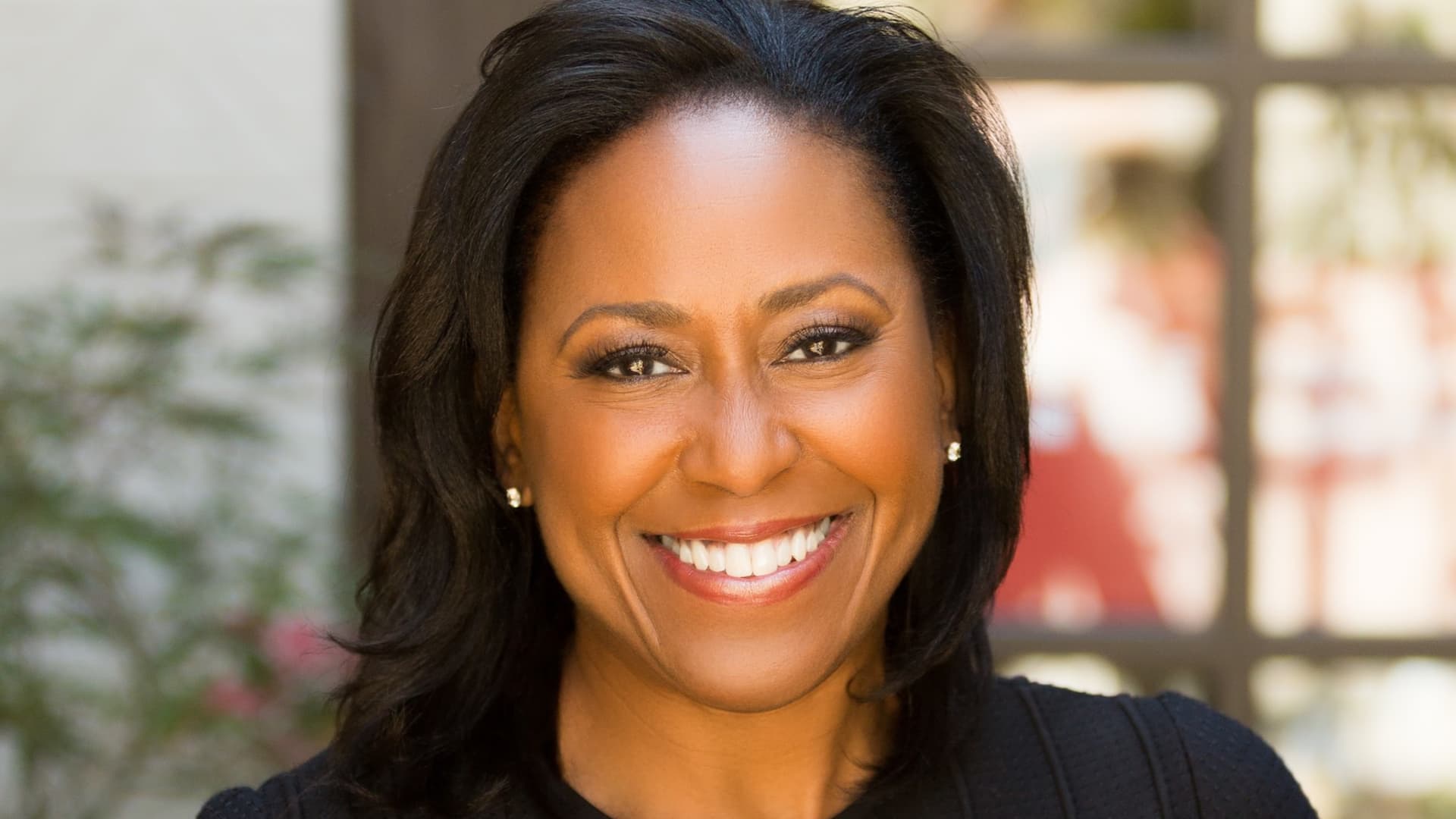This founder creates ‘playbooks’ for women who want to advance their careers—here’s her best advice
Lisa Skeete Tatum, founder and CEO of career development company LandIt, shares her secrets to success, including who's on her dream team and self-advocacy.

For marginalized groups like women and people of color, achieving career success can be much harder than it is for others. Representation in the workplace amongst these groups is also a major issue in fields like tech and cryptocurrency.
That's why Lisa Skeete Tatum, the founder and CEO of Landit, is dedicated to increasing the success of women and diverse groups in the workplace and assisting companies in retaining talented employees from diverse backgrounds. The entrepreneur and ex-venture capitalist uses her extensive knowledge on navigating a career path to create personalized "playbooks" for other women seeking to elevate their careers.
By providing personalized career plans for individuals and businesses, Landit customers are able to achieve their business goals more efficiently. Furthermore, Landit's company clients have seen significant success from their development tools, according to their website, including a 120% increase in mobility, a 200% increase in company engagement, and a 125% increase in employee retention.
Success takes a village
According to Tatum, these achievements wouldn't have been possible without her "dream team" composed of not only her board of advisors professionally, but also her family.
"I would not be where I am today if it wasn't for people who believed in me… who saw something in me and took a chance, who helped me see things I didn't even know were possible," she tells CNBC Make It. "I come from a long line of trailblazers and people committed to making things happen for others. And it was my mother who said 'you can go out there and make that company.'"
Tatum says her parents encouraged her to take risks, which is essential for building a successful brand or company.
The challenges of entrepreneurship
Even with previous experience as a venture capitalist, Tatum says that financing and gaining funding was challenging for her. Black women have disproportionately struggled with gaining access to capital for their start-ups. As of July 2021, Black female startup founders had only received 0.34% of the total venture capital spent in the U.S.
"Entrepreneurship is hard for anyone. But there are extra layers that come when you are a founder of color. And of course, financing is top of it," she says. "You can't grow unless you have resources. You can't hire people. You can't invest in technology. So it was still challenging; however, I was able to surround myself with amazing funders and angel investors that believed in what we were doing. But the road was very, very painful."
Another hurdle that Tatum thinks is "difficult for every founder" is hiring the right talent. She says that, for founders of color, staying true to your vision is critical.
"There are many factors when you're looking at the people that you want to bring into the culture that you want to create. We're a microcosm of society. So you have to be aware of that when you are crafting your team. I think it has particular challenges for founders of color which means you have to approach it differently. You have to get comfortable with the word no. You have to be resolute, and unwavering and your vision and your commitment to what you're doing."
Be your own best advocate
The two-time ivy-league alumna is no stranger to changing career paths, as she's a chemical engineer by training. However, Tatum says that the key to her success is being her own best advocate.
"You have to own and drive your career and advocate for yourself, or no one is going to do it for you," she explains. "You have to know your values, skills, and goals. And then when you have those concentric opportunities or concentric circles, use them to drive your career. We should be as intentional about that, as we are about the projects that we have."
For founders and entrepreneurs that are just starting out, Tatum advises to "protect your brand, like your career depends on it, because it accounts for 30% of what it takes to be successful."
Check out:
Judge Ketanji Brown Jackson to become first Black woman nominated to the Supreme Court
Black employees make up just 7.4% of the tech workforce—these nonprofits are working to change that
These are the top 10 companies for career advancement, according to Black employees
Sign up now: Get smarter about your money and career with our weekly newsletter

 Hollif
Hollif 
































